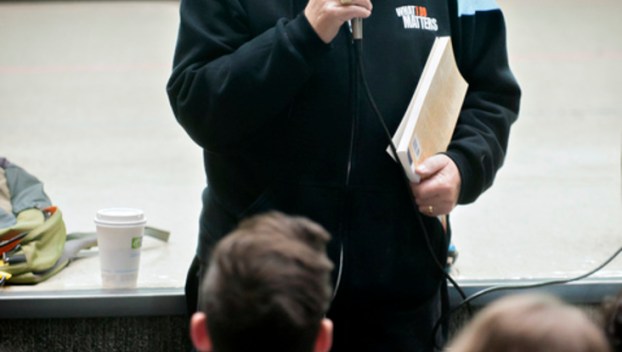
News
Holocaust survivor urges BGHS students not to be bystanders
Fred Gross, a Jewish journalist and author, was only 3 years old when he and his family faced ... Read more

Fred Gross, a Jewish journalist and author, was only 3 years old when he and his family faced ... Read more